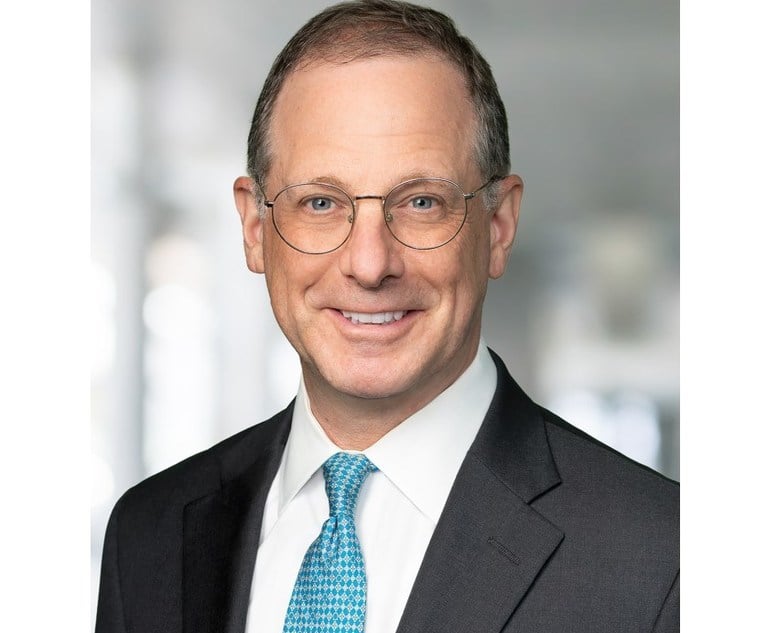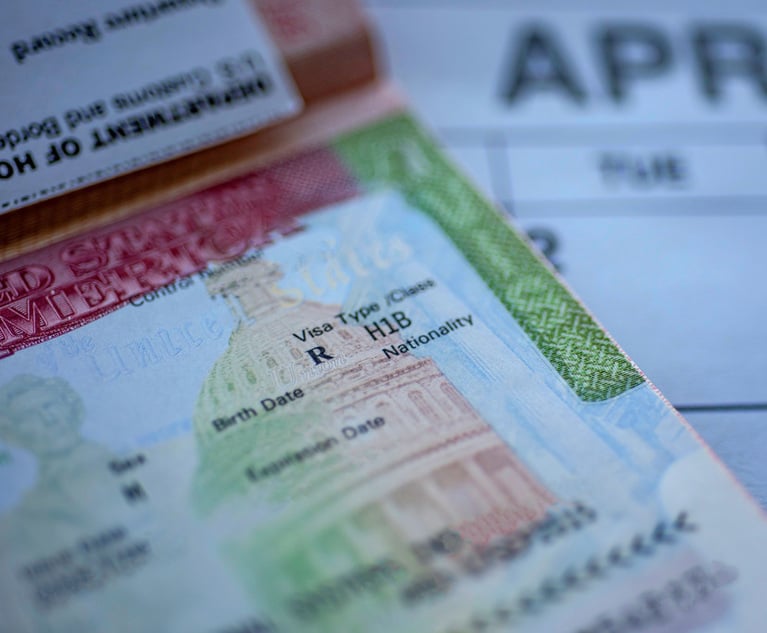 Jeremy Temkin
Jeremy Temkin Application of the Attorney-Client Privilege to Client Identities
Earlier this Term, the Supreme Court declined to review a Fifth Circuit decision upholding a John Doe summons requiring a law firm to disclose the identities of clients to the IRS. In this edition of his Tax Litigation Issues column, Jeremy H. Temkin addresses the Fifth Circuit's opinion, and writes: By declining to take up the issue, the Supreme Court has, for the moment, left it to the lower courts to establish the appropriate limits of John Doe summonses in this context, and 'Taylor Lohmeyer' provides instructive guideposts to practitioners litigating application of the privilege to such circumstances.
January 19, 2022 at 12:30 PM
9 minute read
It is a well-known maxim that the attorney-client privilege "extends only to communications and not to facts." Upjohn Co. v. United States, 449 U.S. 383, 395 (1981). It is similarly well established that while the identity of a client typically is not protected from disclosure, the privilege can be invoked to bar revealing a client's identity when doing so will necessarily disclose the substance of a privileged communication. See United States v. Liebman, 742 F.2d 807, 809 (3d Cir. 1984). These principles frame the conundrum presented when the Government seeks to compel lawyers to disclose their clients' identities.
Earlier this Term, the Supreme Court declined to review a decision by the U.S. Court of Appeals for the Fifth Circuit upholding a John Doe summons requiring a law firm to disclose the identities of clients to the IRS. Taylor Lohmeyer Law Firm v. United States, 957 F.3d 505 (5th Cir. 2020), cert. denied, 142 S. Ct. 87 (2021). This article addresses the Fifth Circuit's opinion, including the key features of three analogous cases the court analyzed in finding that the summons at issue did not breach the privilege. By declining to take up the issue, the Supreme Court has, for the moment, left it to the lower courts to establish the appropriate limits of John Doe summonses in this context, and Taylor Lohmeyer provides instructive guideposts to practitioners litigating application of the privilege to such circumstances.
This content has been archived. It is available through our partners, LexisNexis® and Bloomberg Law.
To view this content, please continue to their sites.
Not a Lexis Subscriber?
Subscribe Now
Not a Bloomberg Law Subscriber?
Subscribe Now
NOT FOR REPRINT
© 2025 ALM Global, LLC, All Rights Reserved. Request academic re-use from www.copyright.com. All other uses, submit a request to [email protected]. For more information visit Asset & Logo Licensing.
You Might Like
View All
Workers' Attempt to Link H-1B Hiring to Tax Fraud Falls Short With 2nd Circuit
3 minute read
‘Catholic Charities v. Wisconsin Labor and Industry Review Commission’: Another Consequence of 'Hobby Lobby'?
8 minute read
Walt Disney, IBM Denied High Court Review of Old NY Franchise Tax Law
3 minute readLaw Firms Mentioned
Trending Stories
- 1Uber Files RICO Suit Against Plaintiff-Side Firms Alleging Fraudulent Injury Claims
- 2The Law Firm Disrupted: Scrutinizing the Elephant More Than the Mouse
- 3Inherent Diminished Value Damages Unavailable to 3rd-Party Claimants, Court Says
- 4Pa. Defense Firm Sued by Client Over Ex-Eagles Player's $43.5M Med Mal Win
- 5Losses Mount at Morris Manning, but Departing Ex-Chair Stays Bullish About His Old Firm's Future
Who Got The Work
J. Brugh Lower of Gibbons has entered an appearance for industrial equipment supplier Devco Corporation in a pending trademark infringement lawsuit. The suit, accusing the defendant of selling knock-off Graco products, was filed Dec. 18 in New Jersey District Court by Rivkin Radler on behalf of Graco Inc. and Graco Minnesota. The case, assigned to U.S. District Judge Zahid N. Quraishi, is 3:24-cv-11294, Graco Inc. et al v. Devco Corporation.
Who Got The Work
Rebecca Maller-Stein and Kent A. Yalowitz of Arnold & Porter Kaye Scholer have entered their appearances for Hanaco Venture Capital and its executives, Lior Prosor and David Frankel, in a pending securities lawsuit. The action, filed on Dec. 24 in New York Southern District Court by Zell, Aron & Co. on behalf of Goldeneye Advisors, accuses the defendants of negligently and fraudulently managing the plaintiff's $1 million investment. The case, assigned to U.S. District Judge Vernon S. Broderick, is 1:24-cv-09918, Goldeneye Advisors, LLC v. Hanaco Venture Capital, Ltd. et al.
Who Got The Work
Attorneys from A&O Shearman has stepped in as defense counsel for Toronto-Dominion Bank and other defendants in a pending securities class action. The suit, filed Dec. 11 in New York Southern District Court by Bleichmar Fonti & Auld, accuses the defendants of concealing the bank's 'pervasive' deficiencies in regards to its compliance with the Bank Secrecy Act and the quality of its anti-money laundering controls. The case, assigned to U.S. District Judge Arun Subramanian, is 1:24-cv-09445, Gonzalez v. The Toronto-Dominion Bank et al.
Who Got The Work
Crown Castle International, a Pennsylvania company providing shared communications infrastructure, has turned to Luke D. Wolf of Gordon Rees Scully Mansukhani to fend off a pending breach-of-contract lawsuit. The court action, filed Nov. 25 in Michigan Eastern District Court by Hooper Hathaway PC on behalf of The Town Residences LLC, accuses Crown Castle of failing to transfer approximately $30,000 in utility payments from T-Mobile in breach of a roof-top lease and assignment agreement. The case, assigned to U.S. District Judge Susan K. Declercq, is 2:24-cv-13131, The Town Residences LLC v. T-Mobile US, Inc. et al.
Who Got The Work
Wilfred P. Coronato and Daniel M. Schwartz of McCarter & English have stepped in as defense counsel to Electrolux Home Products Inc. in a pending product liability lawsuit. The court action, filed Nov. 26 in New York Eastern District Court by Poulos Lopiccolo PC and Nagel Rice LLP on behalf of David Stern, alleges that the defendant's refrigerators’ drawers and shelving repeatedly break and fall apart within months after purchase. The case, assigned to U.S. District Judge Joan M. Azrack, is 2:24-cv-08204, Stern v. Electrolux Home Products, Inc.
Featured Firms
Law Offices of Gary Martin Hays & Associates, P.C.
(470) 294-1674
Law Offices of Mark E. Salomone
(857) 444-6468
Smith & Hassler
(713) 739-1250







